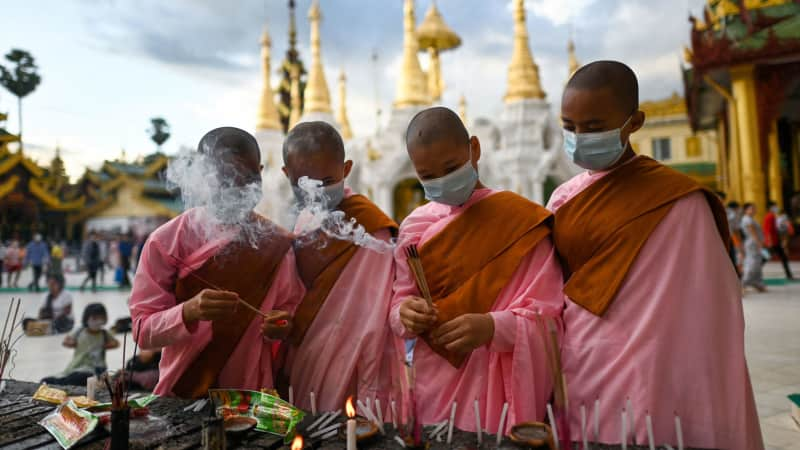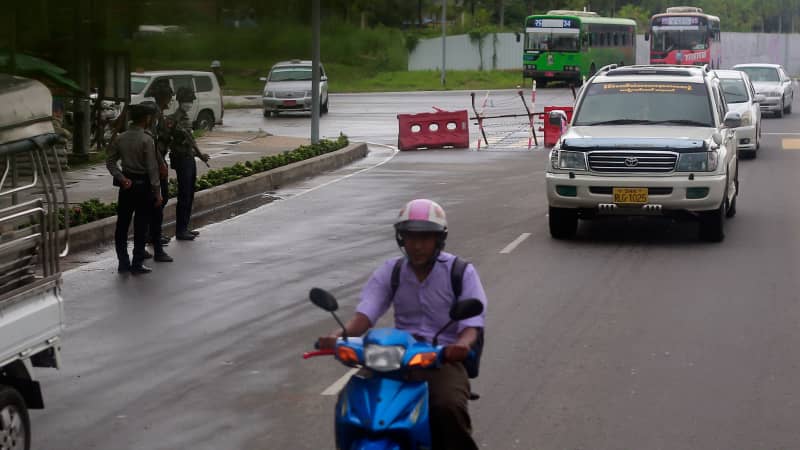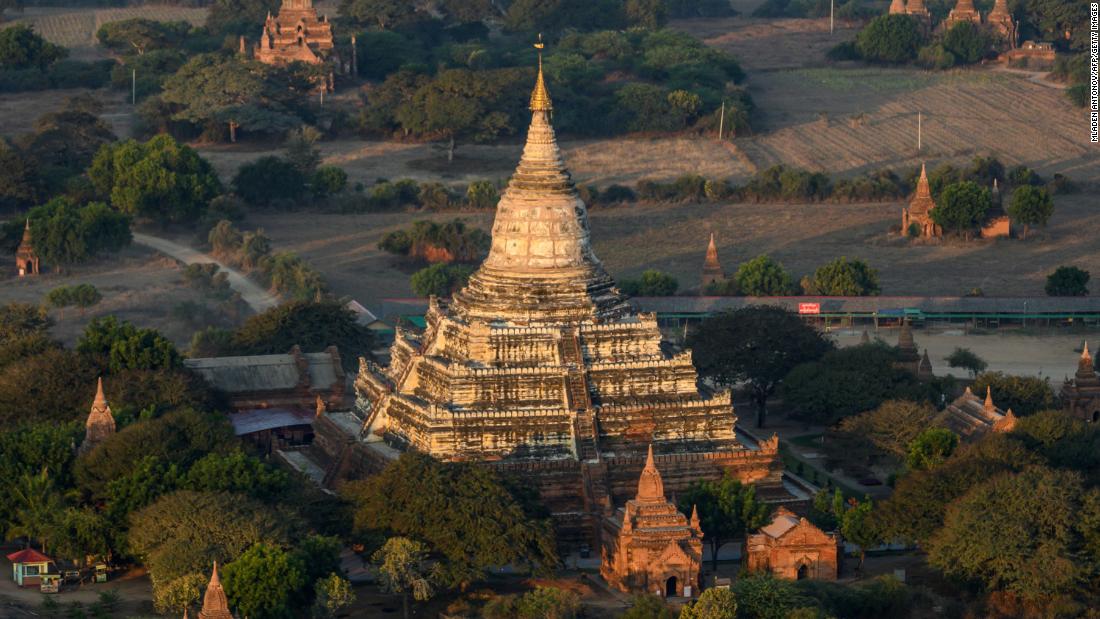(CNN) — As multiple Southeast Asia countries begin to ease travel restrictions, Myanmar, which boasts some of the region’s most spectacular destinations, has announced that it hopes to begin welcoming international tourists in early 2022.
While this might seem like great news for travelers planning their post-lockdown trips, in Myanmar, it’s complicated.
Visiting Myanmar, which has previously spent decades under military rule, has always presented dilemmas for travelers weighing up whether their trip will support what has in the past been labeled an oppressive regime, or will help locals who need outside lifelines.
The question is now, with Covid still an issue across the region and the wider world of travel, plus the turmoil currently gripping the country, will anyone come?
“We are planning to reopen tourism for vaccinated tourists if plans are well-prepared for safe and convenient travel,” Zeyar Htun, deputy director of the Public Relations and Information Department at the military-run Ministry of Hotels & Tourism, confirmed to CNN Travel.
Meanwhile, some international travelers are being warned by their own governments to stay away, due to both Covid concerns and instability in the wake of the coup.
In a separate advisory, it notes “Burma is facing a grave political, economic, human rights and humanitarian crisis due to a brutal crackdown by a powerful military that acts with impunity.”
Religious significance
Beyond international vacationers, there are other travelers who will be keen to enter Myanmar as soon as it’s feasible to do so.
There are people of Burmese heritage who want to reconnect with family, Buddhists eager to see some of the country’s sacred temples and businesspeople who need to check on factories and other projects.

Nuns light incense sticks at Shwedagon Pagoda during the Thadingyut festival.
Ye Aung Thu/AFP/Getty Images
The Shwedagon Pagoda in Yangon, for instance, is the most important Buddhist site in Myanmar. The bright gold, 100-foot-tall structure is home to several sacred Buddhist relics, including eight strands of hair said to be from Buddha’s head. As a result, it’s a popular spot for Buddhist pilgrims from around the world.
Myanmar’s military junta will be particularly eager to see the return of wealthy visitors from China, it’s most important ally and investor.
China has long nurtured ties with Myanmar even while other countries have imposed sanctions. The country is a strategic part of Chinese President Xi Jinping’s “Belt and Road” initiative aimed at building regional trade and expanding China’s global influence.
Blackouts and closures
When Myanmar’s doors do open, travelers returning to the country will notice major changes since their last visit.
According to CNN sources on the ground, infrastructure has been significantly weakened, many businesses have closed due to economic pressure or owners leaving the country, and the tourism industry is now being run by military generals.
Dillon says his contacts in Myanmar tell him of intermittent blackouts and occasional internet shutdowns, which can make it difficult to stay in touch with people outside of the country.
International brands are among those affected. The Kempinski Hotel Nay Pyi Taw Myanmar, a luxury five-star facility in the country’s capital is, according to its website, closed for “the foreseeable future” from mid-October. It didn’t specify why it was shuttering.
Pandaw, a Southeast Asia river cruising company specializing in Mekong River tours, announced it was permanently closing operations in Myanmar and the wider region after more than 25 years of operation, blaming both Covid and “the critical political situation in Myanmar.”
Risk factor
International travelers who do decide to visit Myanmar should make sure they are prepared for contingencies, says Todd Handcock, who as Asia Pacific president of Collinson International advises corporate clients on traveling safely and managing risk.
“Unfortunately, Myanmar is now considered to be a higher risk zone,” he says.
Any company thinking of sending staff to Myanmar should have a “robust travel risk management program” in place, he says. Employees should be fully briefed on what they need to know and how to react when trouble rears its head.

Armed policemen stand guard at a checkpoint on a roadside in Yangon, Myanmar on October 13, 2021.
Myat Thu Kyaw/NurPhoto/Getty Images
He also stresses that it’s important for those in any country beset by trouble to send reassurances home to make it clear they’re safe when bad news is being reported.
“I continuously send (my family) photos of what was going on around me,” he says. “If you’ve got loved ones that are concerned, then do take that extra step as the traveler to make sure that they’re aware.”
‘Backdoor diplomacy’
As in the past when Myanmar has been in the control of a military junta, there have been calls both from within and without the country to boycott anything that would profit the military — including the many tourism facilities and destinations its generals control.
Andrea Valentin, a former adviser on responsible tourism in Myanmar, says the issue is complicated.
“It’s a bit frivolous to discuss tourism in Myanmar right now, despite all tone deaf attempts of the Ministry of Hotels and Tourism to pretend otherwise,” she says. “It is not simple black and white anymore. It’s not North Korea yet.”
Valentin says that it is still possible to travel in a way that doesn’t help fund the military regime, although it’s difficult and most businesses are in more rural areas.
“Yes, it is still possible to travel responsibly in Myanmar at the minute. There are quite a few places that are even now quite safe and ethical. Before the coup, staying in accommodation that’s not owned by the military was definitely possible.
“There are a few amazing initiatives — which we painstakingly helped build over the last years — and those deserve our support.”
She adds: “We don’t believe in a tourism boycott.”
Though travel planner Dillon isn’t leading any Myanmar trips for the foreseeable future, he refuses to write the country off entirely either.
“Tourism is backdoor diplomacy,” he says. “There’s still a lot of hope for people on the ground there that things can change.”
Top image: Famed for its 11th-century temples, Bagan is a popular Myanmar destination. Credit: Getty Images.
